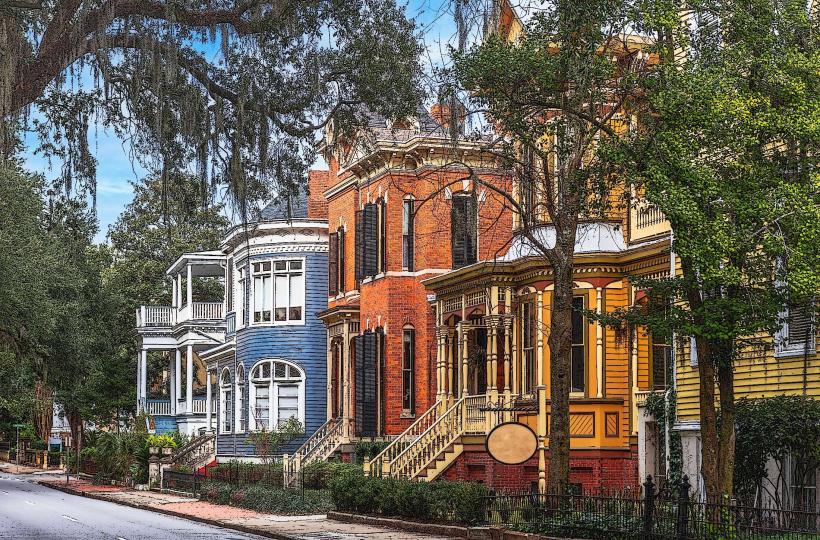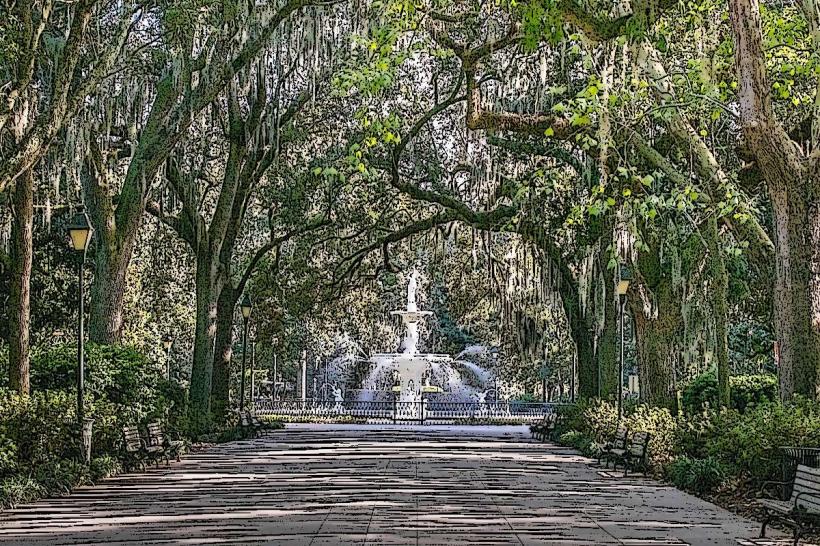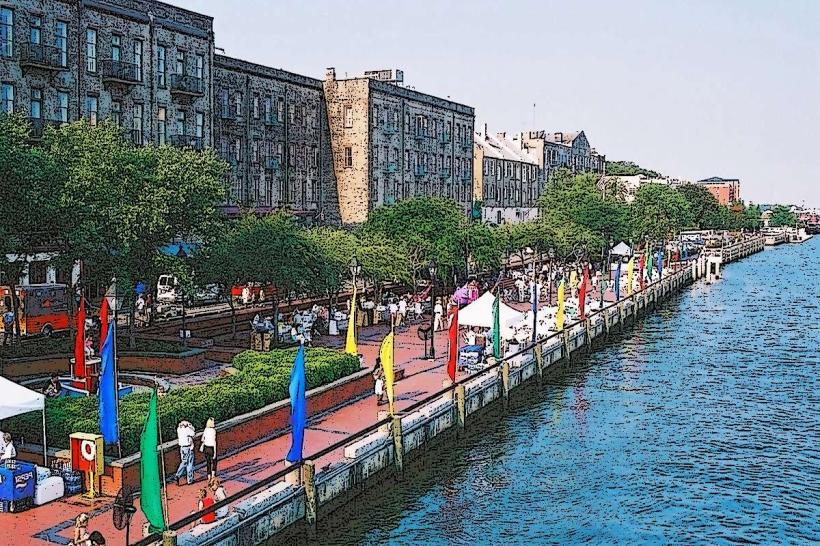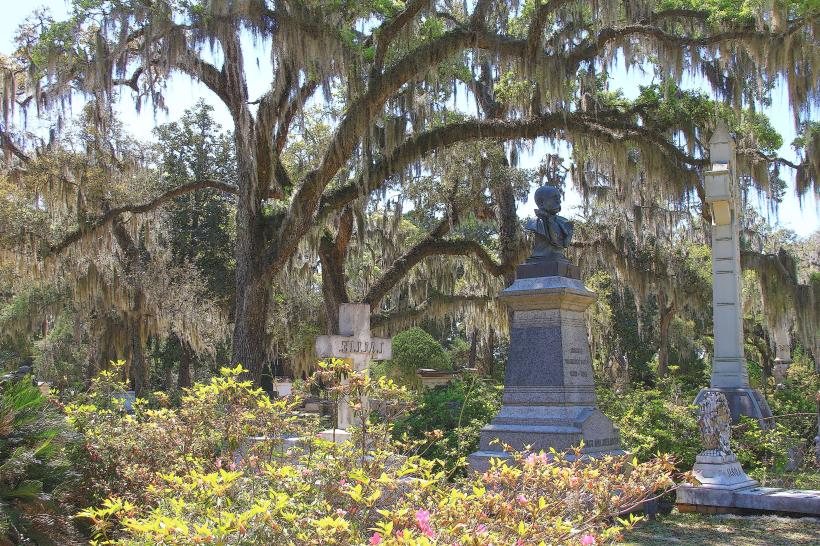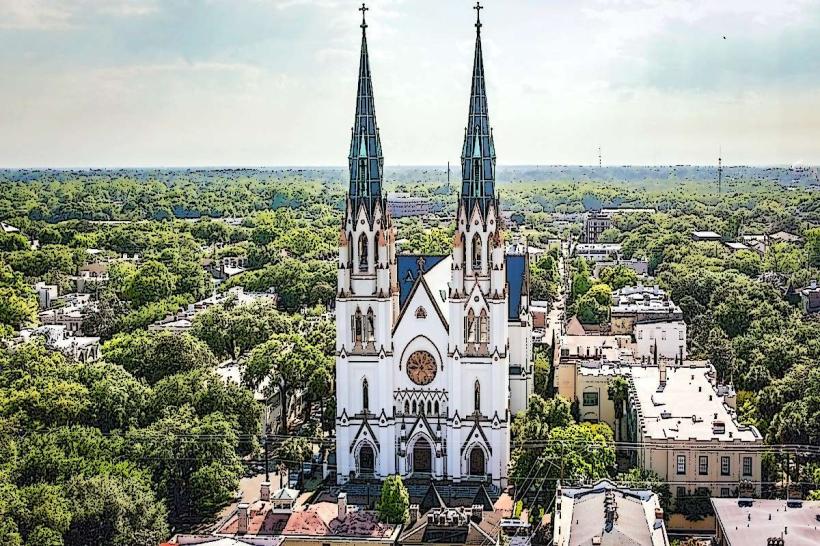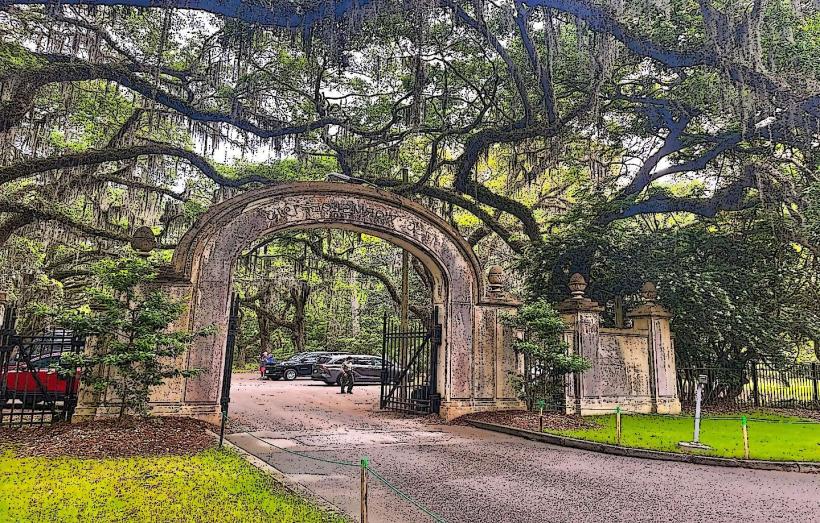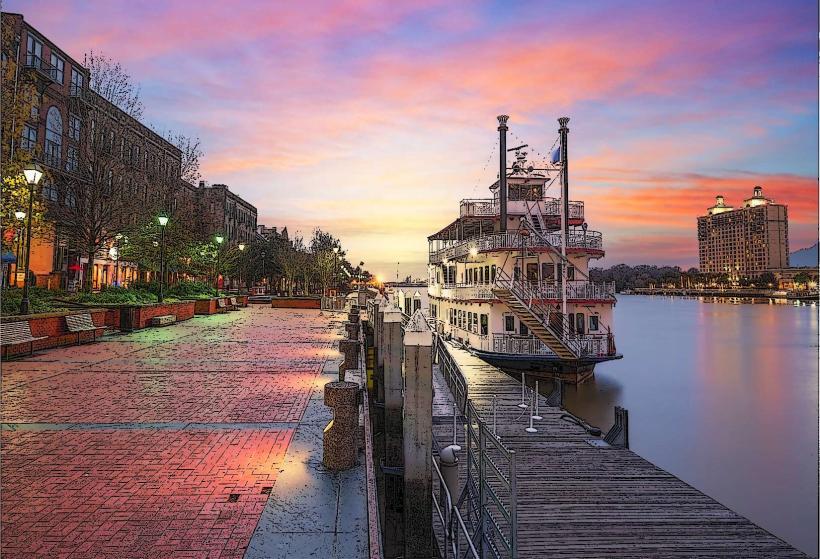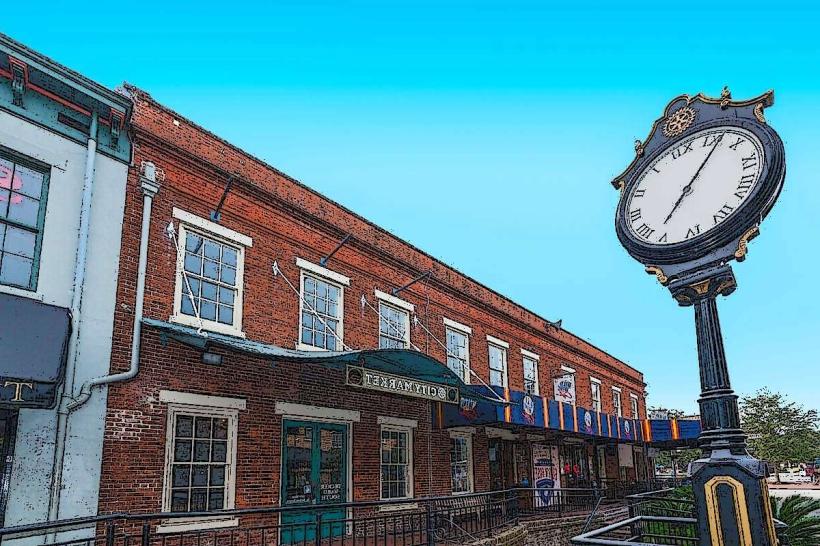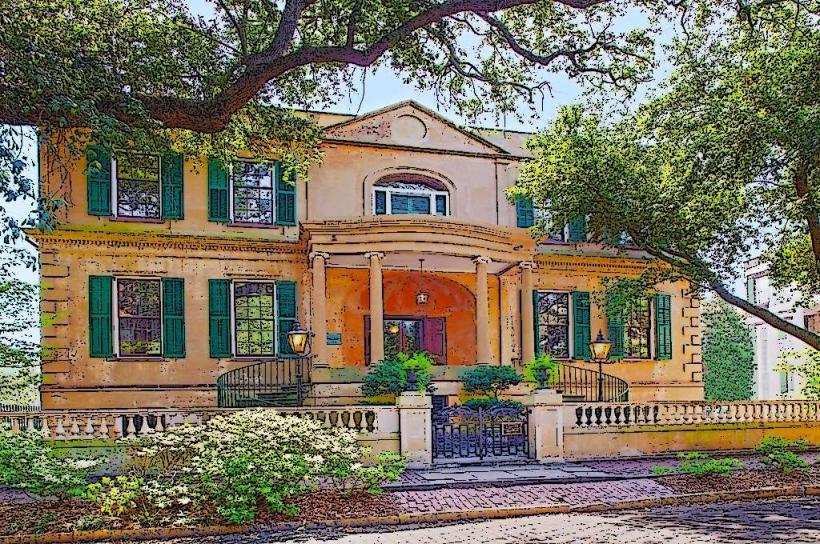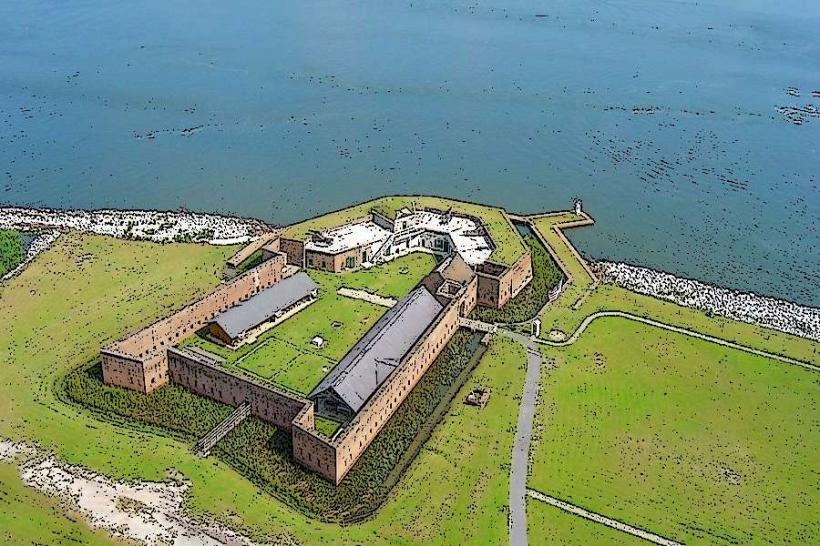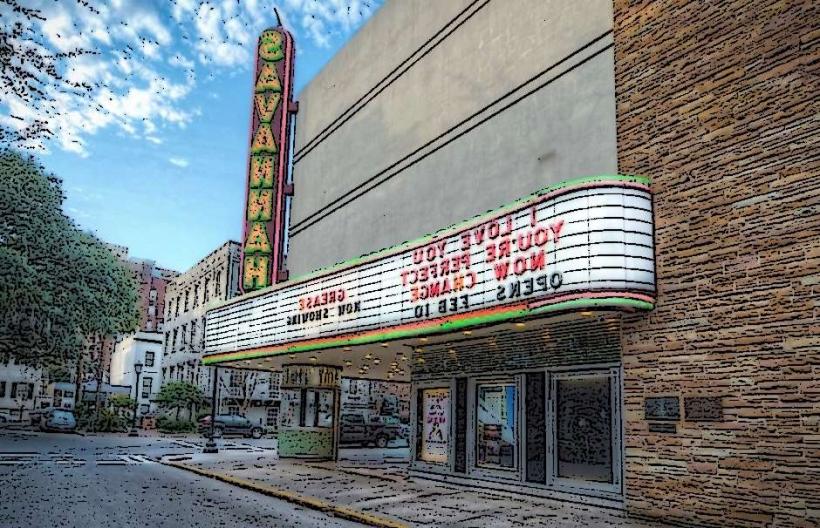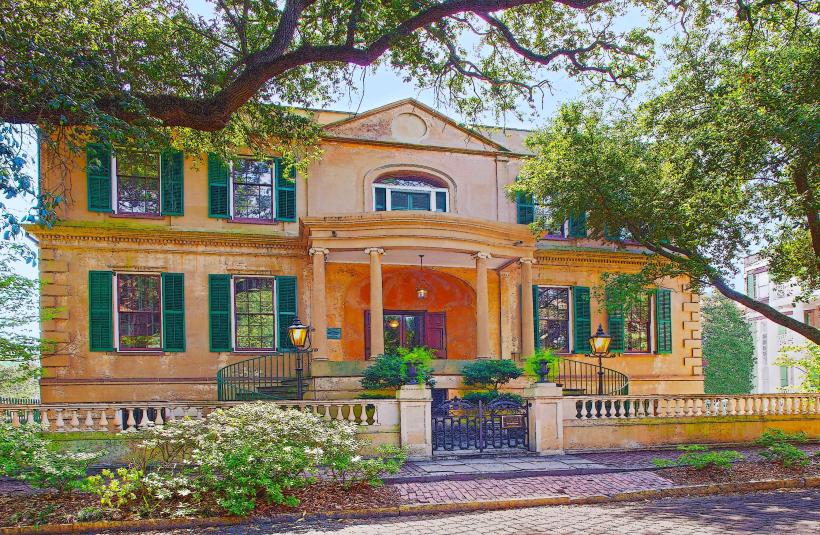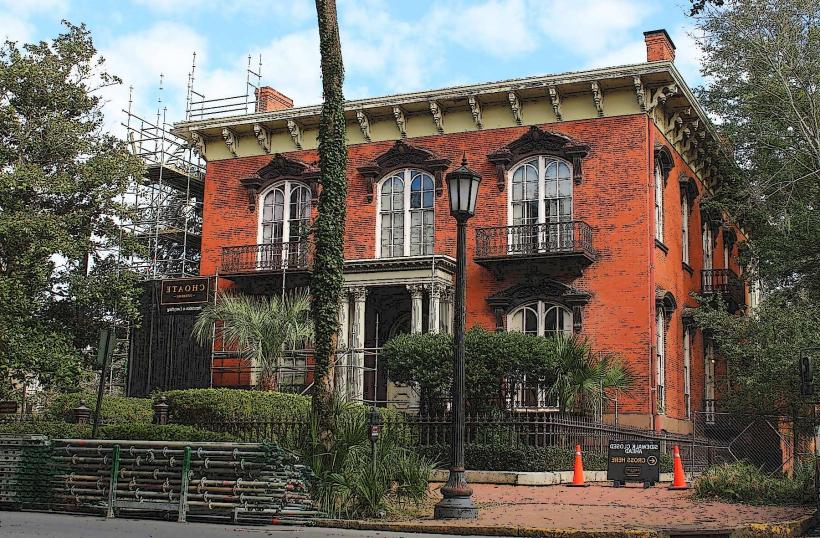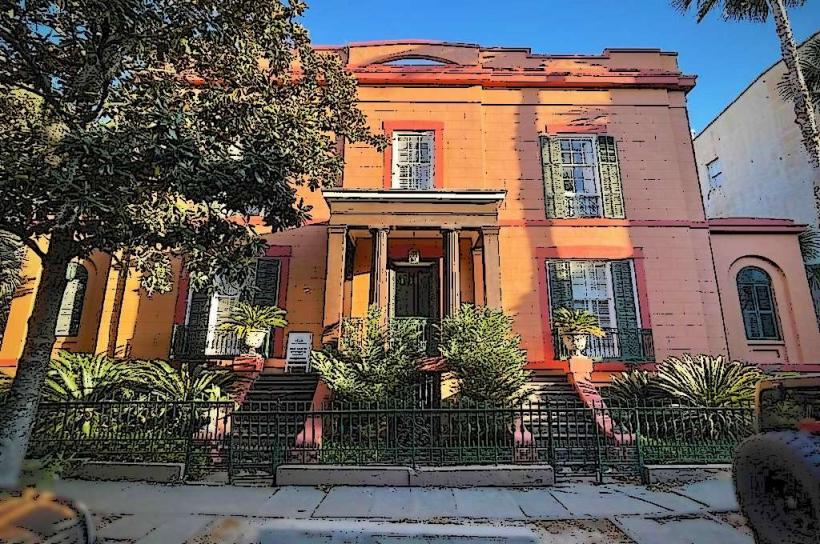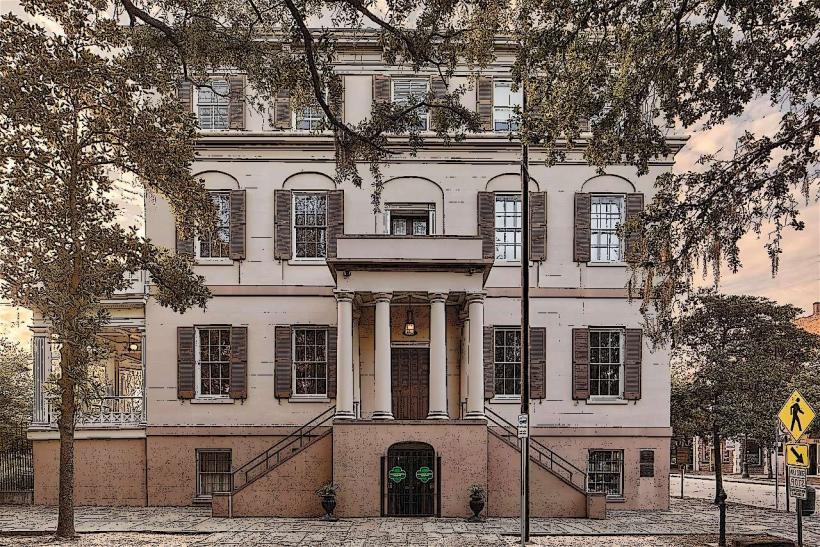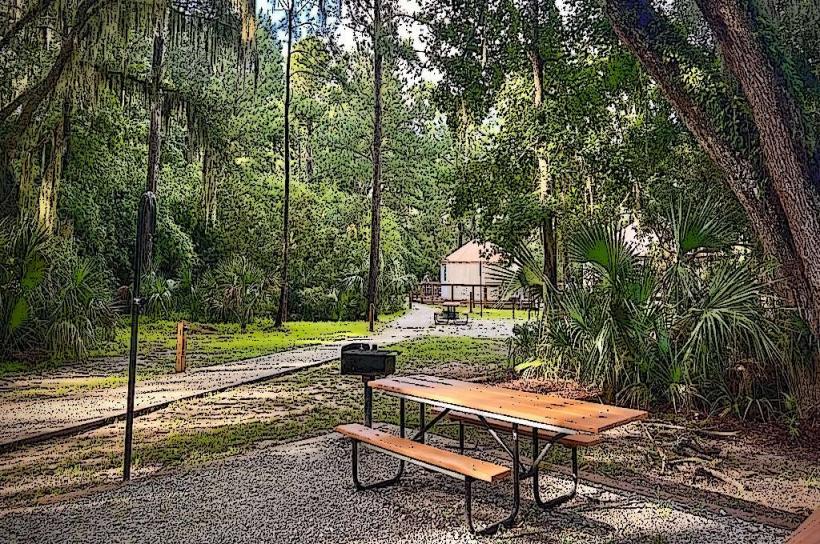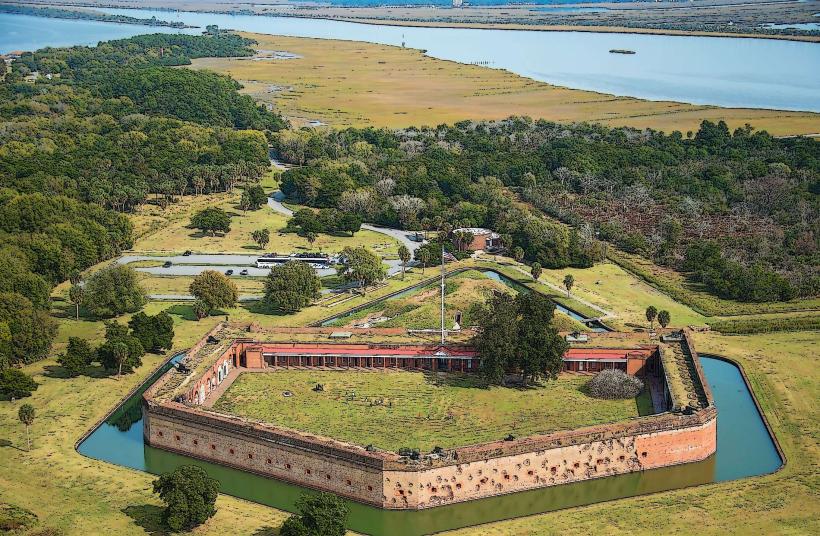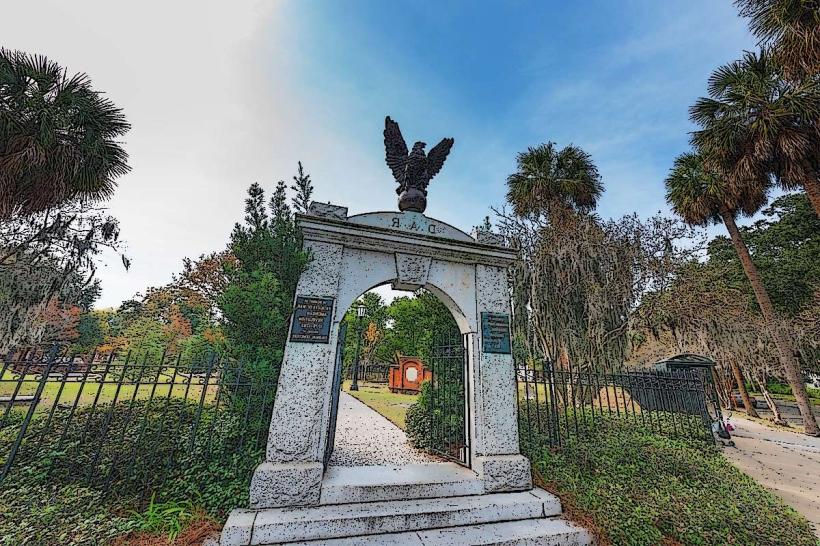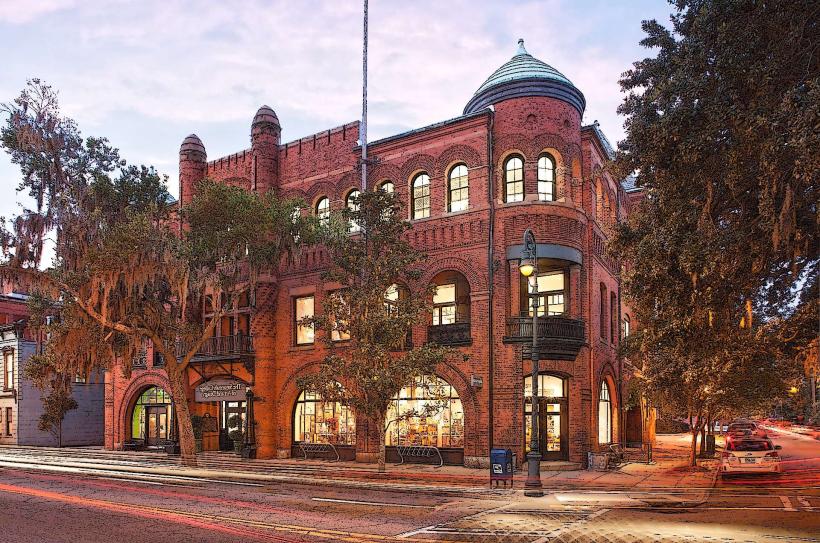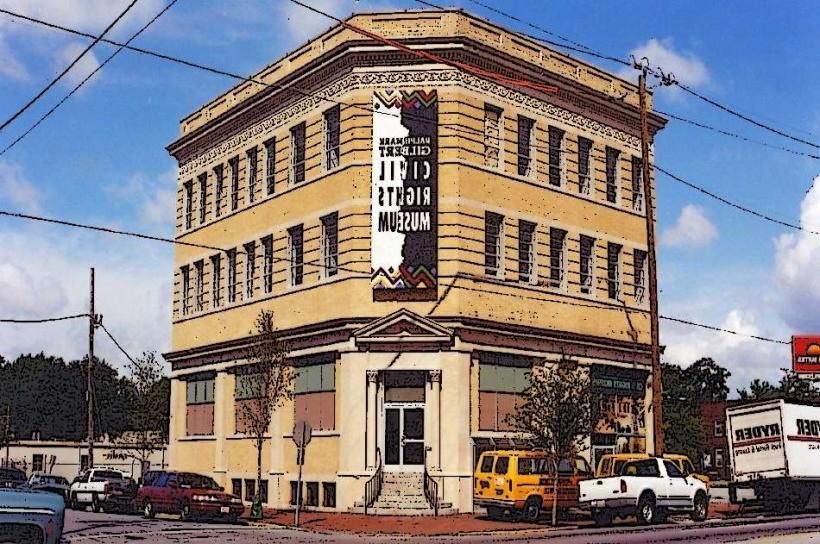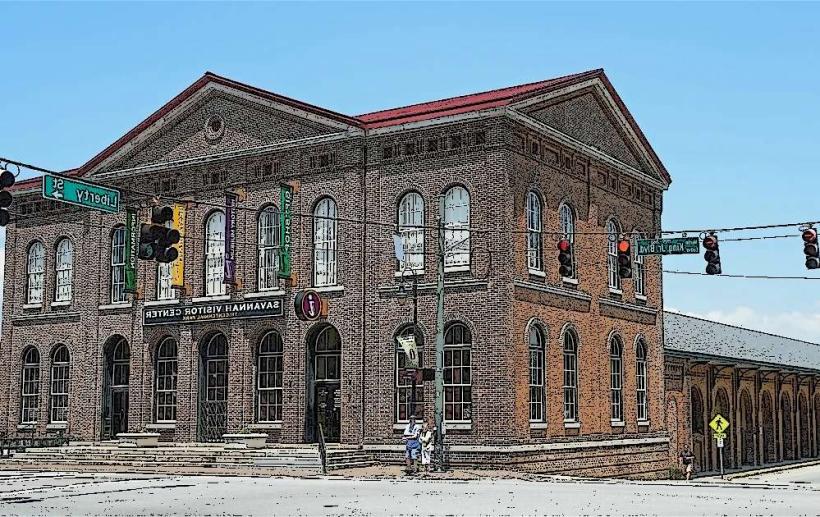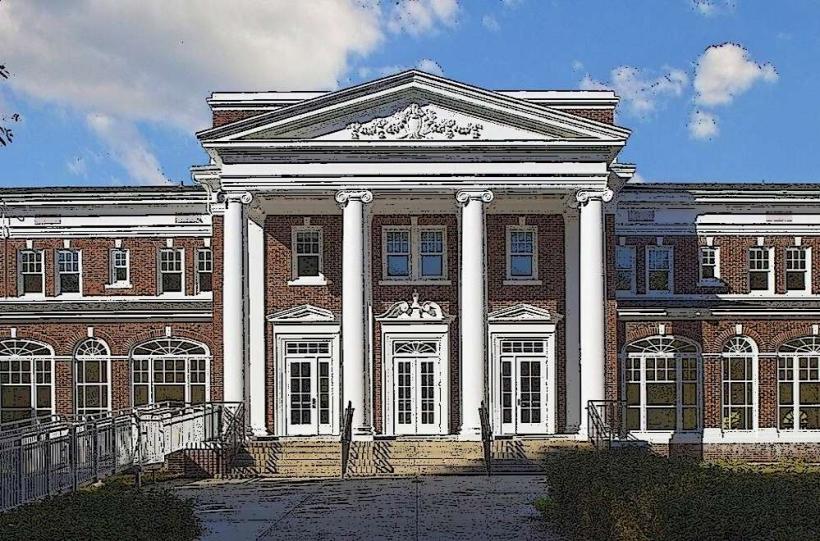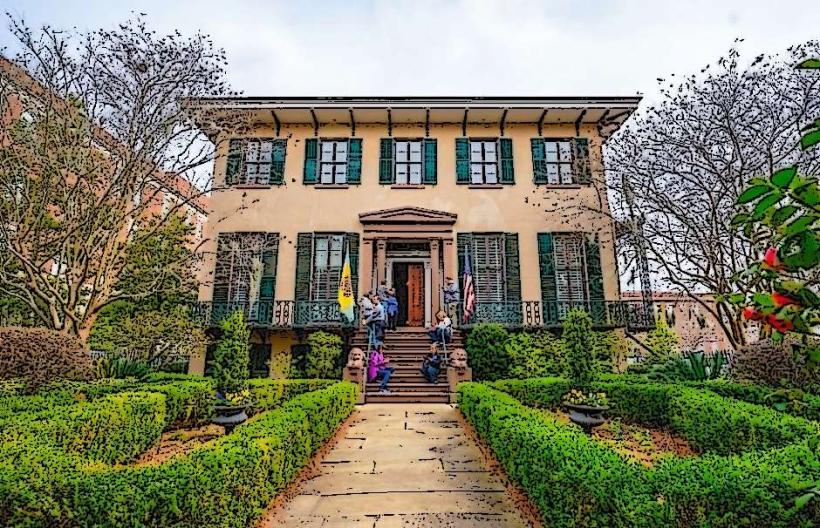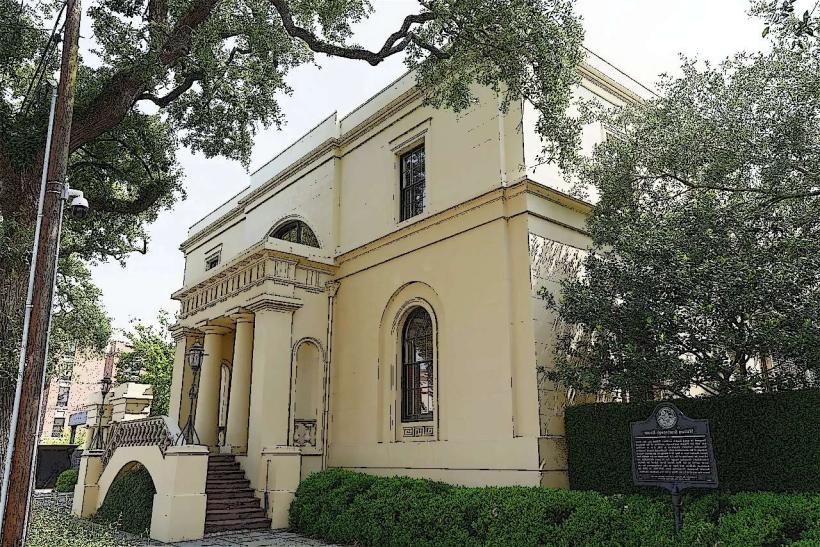Information
Landmark: Pirates’ HouseCity: Savannah
Country: USA Georgia
Continent: North America
Pirates’ House, Savannah, USA Georgia, North America
The Pirates' House is a historic restaurant located in Savannah, Georgia, USA.
This structure is one of Savannah's oldest standing buildings, dating back to 1753.
Visual Characteristics
The building is constructed primarily of brick and wood. Its exterior features a weathered, aged appearance with visible timber framing. The structure is two stories high with a steeply pitched roof. Architectural elements suggest a colonial-era design.
Location & Access Logistics
The Pirates' House is situated at 20 East Bay Street, Savannah, Georgia, 31401. It is located on the riverfront, approximately 0.3km East of the Savannah City Hall. Parking is available in nearby public garages, such as the Whitaker Street Garage (0.5km West). Public transport options include the Chatham Area Transit (CAT) bus system; Route 14 stops within 0.2km.
Historical & Ecological Origin
Originally built in 1753 by Captain John Ryan, the structure served as a tavern and boarding house for sailors. It was known as "The Sign of the White Horse Cellar." Its purpose was to cater to the maritime community arriving at Savannah's port.
Key Highlights & Activities
Dining is the primary activity. The restaurant serves seafood and traditional Southern cuisine. Visitors can explore the historic dining rooms, some of which are below ground level.
Infrastructure & Amenities
Restrooms are available on-site. Limited shaded areas are present in the immediate vicinity. Cell phone signal (4G/5G) is generally strong. Food vendors are not present directly outside the establishment, but numerous restaurants and shops are located within a 0.5km radius.
Best Time to Visit
For photography of the exterior, late afternoon provides favorable lighting. The restaurant is open for lunch and dinner daily. Reservations are recommended, especially on weekends.
Facts & Legends
The Pirates' House is rumored to have been a meeting place for pirates and smugglers. Robert Louis Stevenson is said to have drawn inspiration from the establishment for his novel "Treasure Island."
Nearby Landmarks
- 0.3km West: Savannah City Hall
- 0.5km Southwest: River Street
- 0.7km West: Factor's Walk
- 1.2km Southwest: Forsyth Park
- 1.5km Northwest: Old Fort Jackson

